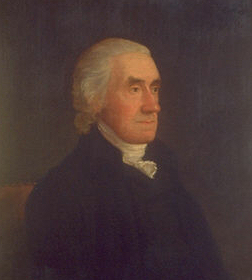A Quote by Gilbert Murray
The life and liberty and property and happiness of the common man throughout the world are at the absolute mercy of a few persons whom he has never seen, involved in complicated quarrels that he has never heard of.
Related Quotes
It is not the right of property which is protected, but the right to property. Property, per se, has no rights; but the individual - the man - has three great rights, equally sacred from arbitrary interference: the right to his life, the right to his liberty, the right to his property The three rights are so bound together as to be essentially one right. To give a man his life but to deny him his liberty, is to take from him all that makes his life worth living. To give him his liberty but take from him the property which is the fruit and badge of his liberty is to still leave him a slave.
[A] republic . . . [is] a government, in which the property of the public, or people, and of every one of them was secure and protected by law . . . implies liberty; because property cannot be secured unless the man be at liberty to acquire, use or part with it, at his discretion, and unless he have his personal liberty of life and limb, motion and rest, for that purpose.
Abraham Lincoln was, in my judgment, in many respects, the grandest man ever President of the United States. Upon his monument these words should be written: "Here sleeps the only man in the history of the world who, having been clothed with almost absolute power, never abused it, except upon the side of mercy."
I have never belonged wholeheartedly to a country, a state, nor to a circle of friends, nor even to my own family. When I was still a rather precocious young man, I already realized most vividly the futility of the hopes and aspirations that most men pursue throughout their lives. Well-being and happiness never appeared to me as an absolute aim. I am even inclined to compare such moral aims to the ambitions of a pig.
If every person has the right to defend - even by force - his person, his liberty, and his property, then it follows that a group of men have the right to organize and support a common force to protect these rights constantly. Thus, since an individual cannot lawfully use force against the person, liberty, or property of another individual, then the common force - for the same reason - cannot lawfully be used to destroy the person, liberty, or property of individuals or groups.
I now say that the oldest man living never heard of the president of a great nation to come down to open electioneering for his successor. It is treating the nation as if it was the property of a single individual, and he had the right to bequeath it to whom he pleased - the same as a patch of land for which he had the patent.






































